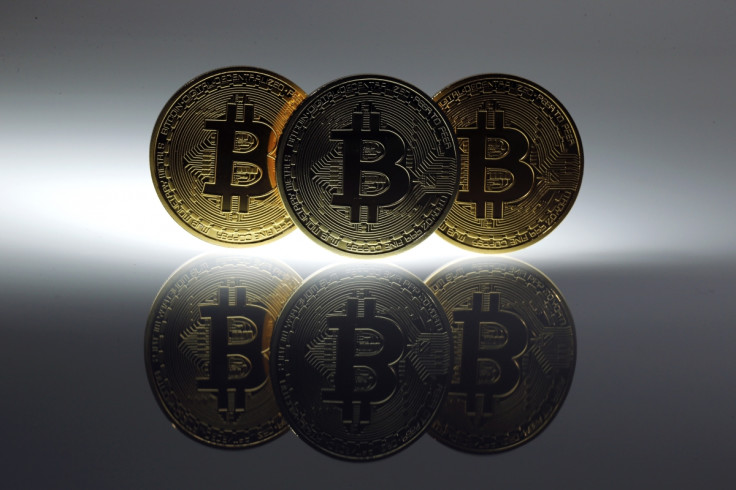Was the US Government's Silk Road Bitcoin Auction a Sham?

After it was revealed that just a single entity won all 29,657 Silk Road bitcoins in the US government-run auction, questions are being asked about the legitimacy of the sell-off.
On Tuesday, the US Marshals Service (USMS) - which ran the auction - revealed there was just a single winning bidder, despite 42 other bidders registering before the auction took place.
The USMS is unlikely to reveal the identity of the winner, and unless the winner comes forward voluntarily with proof that it is now the owner of almost 30,000 bitcoin, there is no way of ever knowing where the coins have gone.
This has led one journalist to posit the theory that the whole Silk Road bitcoin auction was just a scam and that the US government used it in order to launder the coins which were tarnished by association with the underground drugs bazaar.
Sting
Financial Times journalist Izabella Kaminska, writing on her personal blog, said:
"I love the assumption that just because they didn't win they must have been outbid. That could be the case. But it could also be the case that winners are not coming forward because there aren't any. And that's mostly because the whole auction was a sting."
One big result of the auction was a spike in the price of bitcoin in its aftermath, as most people believed that big players like Second Market, Pantera Capital and BitPremier being outbid was a sign of renewed investor interest in the market.
Kaminska thinks there is a better explanation:
"I find [a US government sting] a surer explanation than the idea that the auction cleared at a ridiculously above market price level because new entrants were so keen to overpay for size."
Kaminska believes that by laundering the bitcoins in this way, the US government is now free to do with them whatever it wants, including use them on underground forums where the Silk Road bitcoins would have been seen as tarnished.
Seized
To get a sense of how realistic this scenario is, let's first look at what we know about the Silk Road bitcoins and the auction.
On 2 October, 2013, the FBI shut down underground drugs marketplace Silk Road, arresting Ross William Ulbricht and charging him with making $80 million (£46m) from operating the website which had over 1 million registered users.

The FBI seized servers which were used to run the website and as part of that seizure, the agency took possession of almost 30,000 bitcoins which were held in wallets on the servers.
These are the bitcoins which the FBI announced last month that it was putting up for auction.
On Friday, 27 June, between 6am and 6pm the US Marshals Service ran the auction. There were 45 registered bidders, each of whom stumped up a $200,000 deposit to take part. 63 separate bids from these groups were received during the auction.
The groups were bidding on 10 separate blocks nine of which contained 3,000 bitcoins and a tenth block of 2,657 bitcoins.
Single winner
The US Marshals Service has not revealed how much the auction garnered the US Treasury, revealing that just a single bidder won the entire cache of 29,657 bitcoins.
"The US Marshals Bitcoin auction resulted in one winning bidder," Marshals Service spokeswoman Lynzey Donahue said. "The transfer of the bitcoins to the winner was completed today."
This is the wallet to which the funds were transferred and these are the details of the transaction on Blockchain.
While the Marshals Service did not want to reveal the registered bidders, it did leak the names of more than a dozen of the groups involved when it inadvertently sent a mass email listing the addresses of those interested in the auction.
As well as the bidders being leaked, some have made their participation public voluntarily in the last few days, with all claiming that they had failed in their attempts to secure any of the bitcoin up for sale.
And that's about it in terms of what we know about the auction.
So is Kaminska's theory a runner?
The theory it based on the fact that the US government felt the need to launder the coins because they had become stigmatised by association with Silk Road. Indeed the wallet addresses holding the seized Silk Road bitcoins had been notated on Blockchain.info as "Silk Road Seized Coin" and "DPR Seized Coins" (for Dread Pirate Roberts, the pseudonym assumed by Silk Road's owner).
The structure of bitcoin is such that people would be able to see where the coins have come from previously and where they were sent, so by selling them in an anonymous auction the coins coming out the other side would be free by this stigma.
The problem with this theory is that the wallet belonging to the "winner" of the auction has also been identified, meaning any stigma attached to the bitcoin is likely to remain in part at least.
Convert
Kaminska also says that the anonymous auction model used by the government was a perfect cover for a sting operation. But it didn't really have any other option.
The reason the government decided to auction off the bitcoin rather than simply convert it directly to US dollars is that there is no US-based bitcoin exchange which could handle this type of volume.
Considering the 30,000 bitcoins up for auction were worth over $17m based on current market value, selling them in one go would cause chaos in the market considering total daily bitcoin trading volume at the moment is about $14m.
The three biggest bitcoin exchanges which handle the majority of this volume are all based in Europe: Bitstamp (Slovenia and UK), Bitfinex (France) and BTC-e (Bulgaria).
Pull the wool over our eyes
Kaminska's theory is an interesting one and it's validity will be tested if and when the US Marshals Service decide to auction off the 144,000 other bitcoins it holds which were seized from computers belonging to Ross Ulbricht.
Ulbricht is currently contesting ownership of those coins, claiming they are his personal property and are not part of the Silk Road's assets,
Should an auction of these bitcoins result in a similar situation where one bidder wins everything, then we'll have a lot more proof that the US government is trying to pull the wool over our eyes.
© Copyright IBTimes 2025. All rights reserved.






















